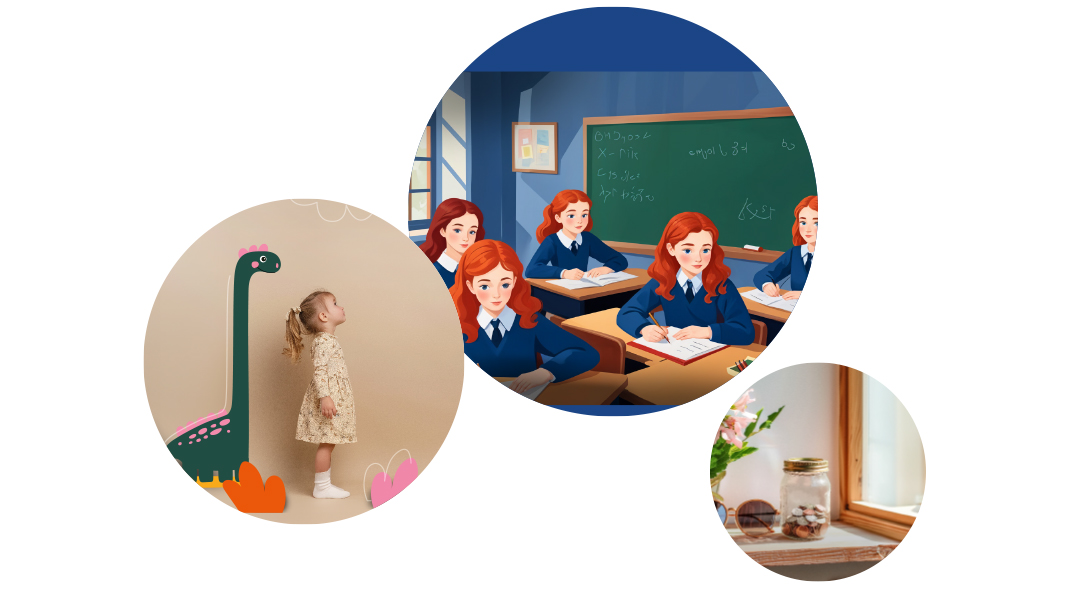Family First Inbox: Issue 809

“We are human; we are trying our best, and we juggle hectic lives. Redting shidduchim is a passion and priority, but we’re human”

Give Nothing, or Give Guilt? [Lifetakes / Issue 808]
Reading Esther Kurtz’s article about feeling like a good mother for agreeing to take her child to a friend’s house — a 45-minute drive each way — but then wondering if her frustration outweighed her goodwill reminded me of an important parenting principle discussed by Dr. Haim Ginott: A child’s pleasure should not come at the price of a parent’s suffering. The cost is too great for both.
We think loving suffering on a child’s behalf — “I’m so worried when you go there — oh, you can go” or “You can eat the last piece of chicken, son, don’t worry about me” — is noble, but it’s actually not. Parents want to acquire a child’s love and gratitude by overextending themselves, but the children don’t feel grateful in return; they feel hateful and choked by it.
Instead, a person can do things willingly, with no strings attached — or not at all. Better to give nothing than a load of guilt.
B. Leibowitz
What Home Means [Editor’s Letter / Issue 807]
Bassi Gruen’s recent letter about both the daily hardships and the beautiful gifts of living in Eretz Yisrael really resonated with me.
Having just returned from a monthlong trip there with my family to introduce our children to the land that we only poetically call “home,” the ache inside of me is more present than ever. Back in the comfort of my minivan, alone with just my family, the air-conditioning on full blast and the kids comfortably seated behind me, we listen to Mordechai Shapiro’s “Achas,” and my heart hurts as I’m brought back to our drive just a few short weeks before, with the same song serving as our background to the beautiful views of the Dead Sea. The views of water and desert were sprawled majestically outside our rented van, and I couldn’t help but notice my own hypocrisy as I belted out the words “shivti b’veis Hashem, kol yemei chayai.” If that’s what I really want, I asked myself, what are we doing living outside of Eretz Yisrael?
So I want you to know, Bassi: We envy your struggle and the daily grind of living in the land you did not grow up in but chose to grow in. We admire your dedication and your grit, and we question ourselves every day while you live with the certainty and familiarity that only accompanies being Home.
And while I do have a very clear memory from years ago of sitting alone on Har Chermon, with no one but my husband in our entire view, I agree with you, Bassi, you’re never alone in Eretz Yisrael. Somehow, when you’re there, you’re part of something so much bigger and so much richer than any solitude could ever hold.
Thank you for reminding us of what it means to be home.
Russy Tendler
Tables Turned [Mix and Match / Issue 807]
When I started redting shidduchim, I silently promised that I would do whatever it took to respond to all those who reached out to me. When I was single, it was a horrible feeling to reach out to shadchanim and get no response.
Now the tables are turned. Life is bustling and hectic, and the sheer volume of callers, both boys and girls, and parents, is beyond overwhelming. I cannot possibly respond to everyone
Even a quick text is sometimes impossible, again because of the multitude of people reaching out.
I so deeply wish I could give singles the hours of time that they deserve and I know my fellow shadchanim feel the same. So, dear readers, please know: We are human; we are trying our best, and we juggle hectic lives. Redting shidduchim is a passion and priority, but we’re human.
If you don’t get a response, it’s not because the shadchan on the other end doesn’t care about you. Chances are that day her baby was up all night. Chances are she didn’t see it. Chances are that he needs to check his files and refresh his mind on who your daughter is and he has gotten around to it.
All these “chances are” have happened to me. While I silently promised I wouldn’t be that nonresponsive shadchan, there aren’t enough hours in the day to be there for everyone. I’m really trying, though — and I really care about you, and I want to help. Please be understanding of our limitations.
I hope that if more people redt shidduchim, there will be enough of us to take care of all the singles in Klal Yisrael.
Name Withheld
We Can All Be Shadchanim [Mix and Match / Issue 807]
The recent conversation regarding the perspectives of shadchan versus single has been interesting. But I would like to note that, at least, in my experience, that “professional” shadchanim make up a small percentage of marriage facilitators.
While I spent a lot of time in my singlehood visiting the “professionals,” rare was the date that resulted from these meetings. If I received any suggestions, they were often very, very off-base. I am not trying to denigrate the attempts of shadchanim, but when we boil down the shidduch conversation to only that of the “professional” shadchanim, we forget that they do not hold a monopoly on successful shidduchim.
According to my own unofficial poll, most couples were introduced by laypeople — their family, friends, and acquaintances. Nearly all of my dates came from such a source, as did my marriage.
Each of my parents has made one shidduch. If an idea occurs to me, I try to act on it. Even if nothing comes from it (and nothing has, so far), I am satisfied that I at least followed through.
All of us, any of us, can be a future couple’s shadchan.
Lea Pavel
An Exquisite Story [Within My Walls / Issue 806]
I have resisted writing a letter about Leah Gebber’s writing in general and her new serial, in particular, for a while, because I wasn’t sure how to express what I feel. Her writing is so exquisite, the plots she explores so tantalizingly deep, that they seem way too profound for a cursory reading on the couch on Friday night and just flip to the next page to find out how to do healthy self-care or how to bake sweet potatoes.
But this week’ s installment was just so outstanding that I felt that it would be a crime not to write in — if only to make sure that Leah Gebber realizes what an impact her writing is having on her readers.
The description of learning Torah — and how the song weaves its way into everyday life, was so beautiful — and it was so jarring to consider what life was like when people did not own books. The way you described it really resonated, Yannai’s subtle drashah on the Gemara in Chagigah about the inner voice of tears and the outer voice needed when one is in public, the brilliance and originality of entering into the mind of a wonder-child prophet — and the psychology of how such phenomena are created, the subtle weaving in of how an industrious public figure can be a monster at home, the brilliance of revealing how being asked to put on a facade eats away at a person’s inner core until they lose their relationship to truth completely — all this was so gripping that I just had to finally write.
First of all, thank you, Leah Gebber. Please know that there are people out there who are reading your writing with great pleasure, mining them for insights into human nature. I know you call your writing historical fiction — and it is fascinating to gain insight into different historical periods, but the main thing I get from your writing is the incredible depth of the characters you build. Boy, are you astute!
Second, I wanted to adjure other readers to take the time to really soak in the depth and meaning hidden in almost every installment. This is the kind of writing that needs to be reread a few times, and really savored and discussed.
And, thirdly, I wanted to thank Family First for respecting your audience and being willing to publish historical fiction of this caliber, trusting that at least some of your readership has the sophistication and depth to revel in this kind of writing and depth.
A reader who savors each word of Leah Gebber’s writing each week
(Originally featured in Family First, Issue 809)
Oops! We could not locate your form.







